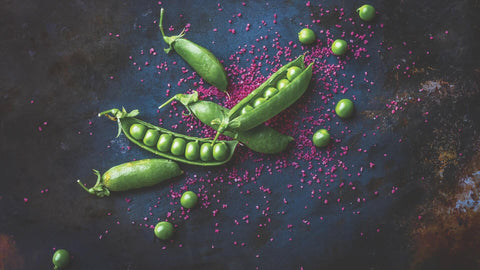Did you know that your diet could be getting in the way of your mental wellbeing?
Having battled PCOS and hypothyroidism for over two decades now, in the initial years I focused more on the physical impact of these hormonal disorders. With the primary goal of battling weight-gain accelerated by both diseases, my diets were designed mainly to aid weight loss, treat my out-of-control acne and speed up metabolism. Three years ago, however, my perspective on the same changed, when after a personal tragedy, I was forced to prioritise my mental health.
In the course of speaking to experts, I learnt just how deeply what we eat (as much as how much and how well we sleep) impacts our mental health and cognitive abilities. Then recently, I read The Food Mood Connection by Dr Uma Naidoo. In the book, the certified psychiatrist, professionally trained chef and nutrition specialist lists a number of foods that not just help treat but also prevent a range of mental health issues ranging from depression to ADHD, OCD, trauma and more—all backed by scientific research. Some of her recommendations surprised me—while I knew Vitamin D could contain anxiety, I was amazed to learn blueberries could help you cope with PTSD, for example.
“There is definitely a strong connection between gut health and the mind,” says psychotherapist Alaokika Bharwani, whose first question to clients is almost always about their eating habits. “If you are eating a lot of sugar and processed foods, it definitely worsens depression. Good gut health is as important as movement when it comes to treating the mind. For example, if you are suffering from candida it could give you brain fog as well as make you lethargic. Once you clean your gut and eliminate foods that aggravate your candida, you’ll feel your vitality coming back. There has to be a holistic approach while treating mental health issues,” she says.
Fortunately, there is a lot more awareness on the connection between diet and mental health and, if a recent article published by Harvard Medical School is to be believed, nutritional psychiatry is on the rise. The article cites studies comparing the Mediterranean diet and the traditional Japanese diet to a typical Western one—according to the results, these diets have shown that the risk of depression is much lower if you favour the first two, because these are are high in vegetables, fruits, unprocessed grains and seafood and low in dairy and lean meats, not to mention void of processed and refined foods and sugars.
“When some people eat whole foods—those not from boxes, cans or tins—they cannot believe how much better they feel both emotionally and physically,” says Mumbai-based Neha Sahaya, nutritionist and wellness consultant. “The production of serotonin is highly influenced by our gut flora—’good’ bacteria that make up your intestinal microbiome. These bacteria play an essential role in our mental and physical well-being and reduce inflammation in our body. An unhealthy diet results in more bad bacteria, therefore reducing the production of our happy hormones. A good gut helps to absorb nutrients from your food as well, cultivating activated neural pathways that travel between the gut and the brain, clearly making our gut also our guide to emotions. Therefore, a nutrient-dense healthy diet is key to a happy you,” she explains. According to Bharwani, anyone going through emotional turbulence should not skip any major food groups. “It is especially important to include complex carbs, protein as well as good fats for brain health,” she says.
Among the foods that help most with brain health are probiotics—concentrates of live organisms that contribute to a healthy microbial environment and suppress the harmful microbes. And among bacteria, lactic acid is the most popular, says Sahaya. “Our Indian diet is packed with enough probiotics such as yoghurt, buttermilk, fermented milk, dhokla, idli, dosa and pickles. International food like miso, kimchi and sauerkraut are also good probiotics, she says.
Prebiotics, essentially food for the microflora already present in the gut—is also necessary. “Most commonly accepted prebiotics are fructooligosaccharides and galactooligosaccharides, naturally occurring in food such as garlic, onion, asparagus, artichoke, onion, oats, banana and wheat. A diet rich in nutrients like omega-3s and zinc can also help. This can easily be added to by nutrient-dense food like fatty fish, oysters, nuts and seeds in your diet,” says Sahaya.
Like Bharwani mentions, those with low Vitamin B12 levels have higher rates of depression and dementia. “B12 is available in animal foods and products, so if you are planning to be vegan or avoid dairy it is important to substitute it with fortified food or a supplement. Legumes, wheat and green leafy vegetables provide the remaining B vitamins (especially folate), the deficiency of which can again lead to depression,” adds Sahaya.
Last year, when India was in lockdown, I found myself feeling exceptionally low, like most. I put it down to the surreal situation and didn’t realise that my iron levels were low, one of the reasons for my lethargy as well, till I got my routine blood work done. Sahaya confirms the correlation and suggests adding foods like black raisins, dates and garden cress seeds on an everyday basis to help increase iron levels and curb sugar cravings as well. “Eat some dark chocolate too—these are rich in antioxidants, increasing blood flow to the brain, thereby enhancing mood and memory.”




